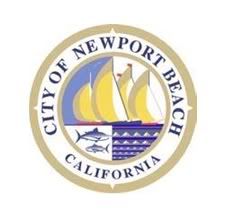BROOKLYN—A criminal complaint was unsealed today in federal court in Central Islip, New York charging Jason Keryc, Anthony Massaro, Anthony Ciccone, and Diane Kaylor, former account representatives of Hauppauge, New York-based Agape World Inc. and Agape Merchant Advance (AMA), for their participation in a large-scale Ponzi scheme. The defendants’ initial appearances are scheduled this afternoon before U.S. Magistrate Judge E. Thomas Boyle at the U.S. Courthouse in Central Islip.
The charges were announced by Loretta E. Lynch, U.S. Attorney for the Eastern District of New York; Ronald J. Verrochio, Inspector in Charge, New York Division, U.S. Postal Inspection Service (USPIS); and Janice K. Fedarcyk, Assistant Director in Charge, FBI, New York Field Office.
Nicholas Cosmo founded Agape in August 2000 and AMA in November 2007. According to the complaint, between October 2003 and January 2009, Keryc, Massaro, Ciccone, and Kaylor played critical roles in the operation of a Ponzi scheme by soliciting and obtaining hundreds of millions of dollars from investors. To induce investments and discourage withdrawals, the defendants misled the investors by, among other things, (1) assuring investors that their investments would only be used to fund specific, short-term, secured bridge loans to commercial borrowers or to make short-term loans to small businesses; (2) promising to pay investors unusually high rates of returns; and (3) representing that investing in Agape and AMA carried little or no risk of loss. The defendants allegedly raised significantly more money than was needed for the loans and lied to the investors when they assured them that their money would specifically be used to fund only a particular loan. For their efforts, Keryc, Massaro, Ciccone, and Kaylor received commissions of approximately $16 million, $6.5 million, $10.7 million, and $4.75 million, respectively.
As alleged in the complaint, the defendants actually ran a Ponzi scheme, paying returns to Agape and AMA investors not from any profits earned on investments, but rather from existing investors’ deposits or money paid by new investors. In addition, unbeknownst to the investors, approximately $100 million of their money was used to trade high risk futures and commodities. Despite the fact that the defendants knew that Agape and AMA did not produce or earn rates of return that could support the exorbitant returns promised to investors, they allegedly continued to solicit money from investors. For example, on June 26, 2008, the defendants received an e-mail from Agape’s loan underwriter informing them that the interest rate that a bridge loan borrower had agreed to pay Agape was only 16 percent for one year, at the same time the defendants had promised to pay their investors 12 percent for 60 days for this investment, or 73 percent for the year. The defendants raised approximately $32.5 million for this bridge loan, although the loan was never made.
As the scheme began to unravel, the defendants allegedly lied to investors about the status of various of Agape’s bridge loans. For example, in November 3, 2008, the defendants learned that all of Agape’s 2007 bridge loans were in default or on extension but allegedly failed to disclose that information to existing or new investors. Rather, according to the complaint, they actively continued to solicit money from investors, totaling nearly $17.4 million.
As investors became increasingly concerned about their investments, the defendants allegedly offered them a fictitious insurance policy, promising that those who purchased the insurance plan would own a portion of liens that purportedly secured repayment of the bridge loans. In fact, there was no insurance policy, but the defendants nonetheless raised approximately $865,000 for the bogus insurance.
During the course of the Ponzi scheme, approximately 5,000 individuals invested a total of more than $400 million in Agape and AMA. Although some investors succeeded over the years in making full or partial withdrawals, particularly before the Ponzi scheme began to unravel, approximately 4,100 investors sustained actual losses totaling approximately $179 million.
On October 14, 2011, Cosmo was sentenced to a term of 25 years in prison for his role in the scheme.
************************************************************************
Report Securities Fraud by Calling 1-888-482-6825 or by visiting
www.reportsecuritiesfraud.net
















1 comment:
Informative post. Thanks for sharing.
Outsourced CFO services
Post a Comment